Selfless Julia gave everybody a chance to get closer to nature
Campaigner founded gardening group and fought council’s decision to cut down mature trees
Friday, 17th March 2023
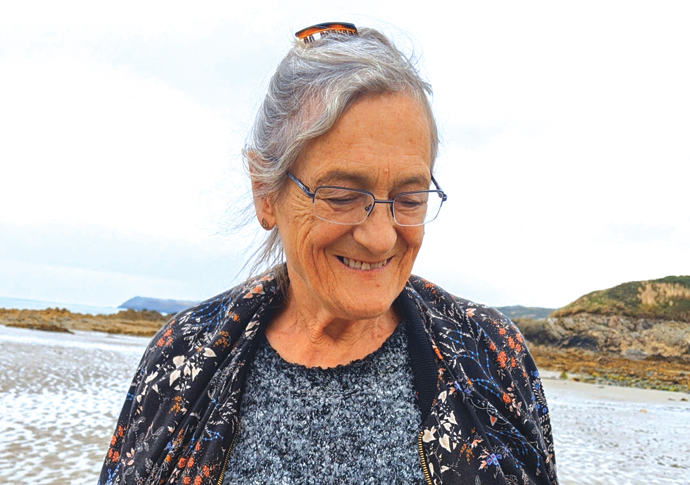
Julia Vellacott on holiday in Anglesey
JULIA Clare Vellacott was a passionate supporter of access to nature and her voluntary work setting up a gardening group was for benefit of all.
She became a core member of the Save the Trees campaign against the council’s decision to cut down six mature trees bordering Highbury Corner and replace them with a private block of flats.
Julia, who has died aged 79, had lived in Compton Terrace for more than 60 years. She had shared a flat with political writers, activists and academics including the neurologist Oliver Sacks and US activist Lou Wolf, co-founder of Covert Action Quarterly.
As one of her first jobs, she joined Penguin Books as a copy editor, working there full time until 1981. She edited books on a wide range of subjects – from psychoanalysis to gardening – and travelled to North Africa, the Middle East and the US for different assignments.
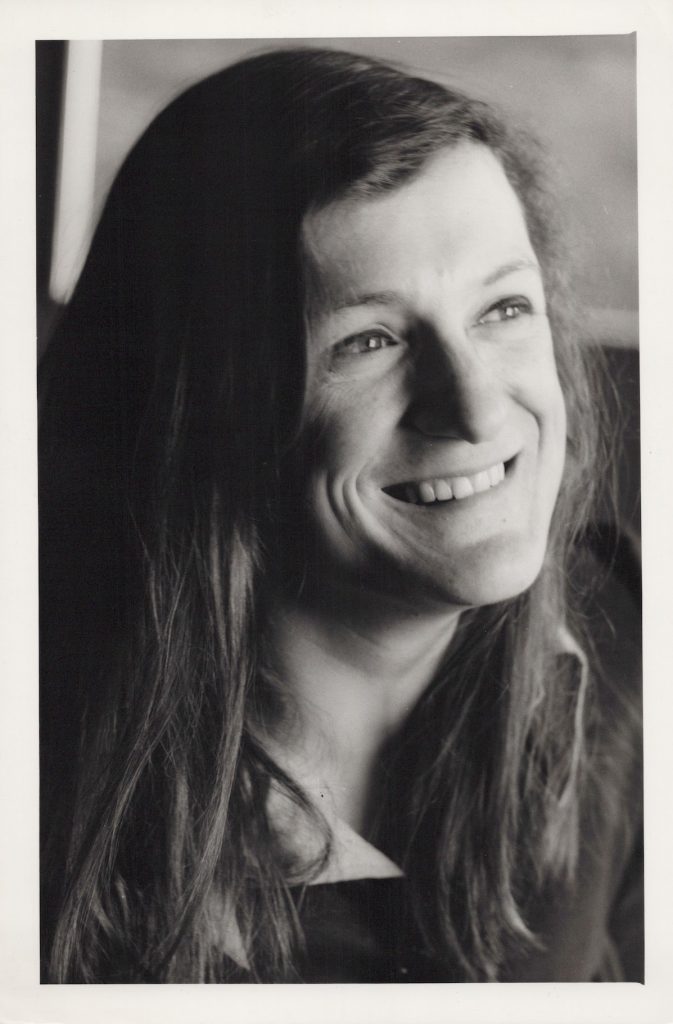
In her twenties, when she began working for Penguin
Through her professional and personal life, Julia was a lifelong feminist and socialist.
She was active in many groups, developing deep friendships within the women’s liberation movement, and she wrote and contributed to many left-wing and feminist publications.
In 1975, Julia became involved with the Hackney Flashers, a feminist collective that produced agitprop photographic exhibitions and booklets, highlighting the social injustices faced by women, particularly as mothers.
After years of living together, Julia married writer David Phillips and she gave birth to twins, a girl and a boy, in 1979, who were the love of Julia’s life.
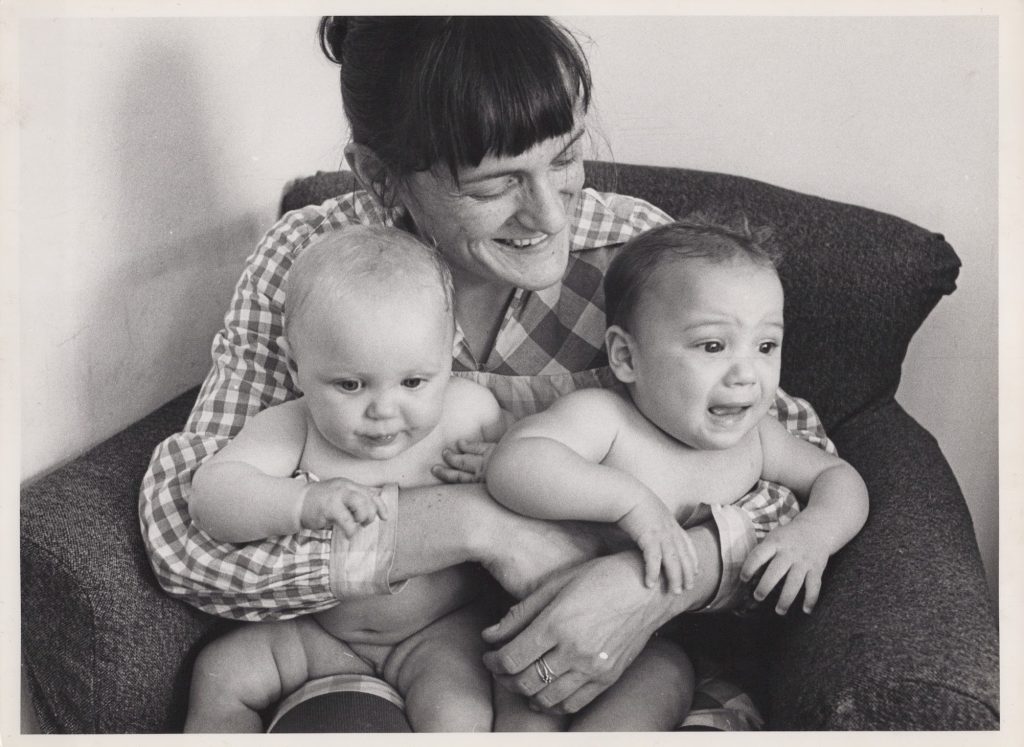
With her twins Ellen and Teilo in 1980
Within their first year, she became a single parent and although she was an active part of a group pushing for women’s equality within Penguin, Julia chose to take redundancy in 1981.
This enabled her to retrain as a psychotherapist with the London Centre for Psychotherapy (LCP). Working mainly from home, she became a respected psychoanalytic psychotherapist, chairing the LCP for a time, alongside freelance copy editing and being a full-time mother.
Julia was also a clinical trustee and long-standing supporter of the Maya Centre (formerly The Islington Women’s Counselling Centre), a feminist mental health charity offering free counselling particularly for women on low incomes, with little education, female refugees or with ESL.
She was also an active member of the Upper Street Association and a Labour Party activist since the 1960s.
It was following a major cut in funding for Islington Green Spaces that Julia founded and led the voluntary Compton Terrace Gardens gardening group, with a dedicated group of local volunteers.
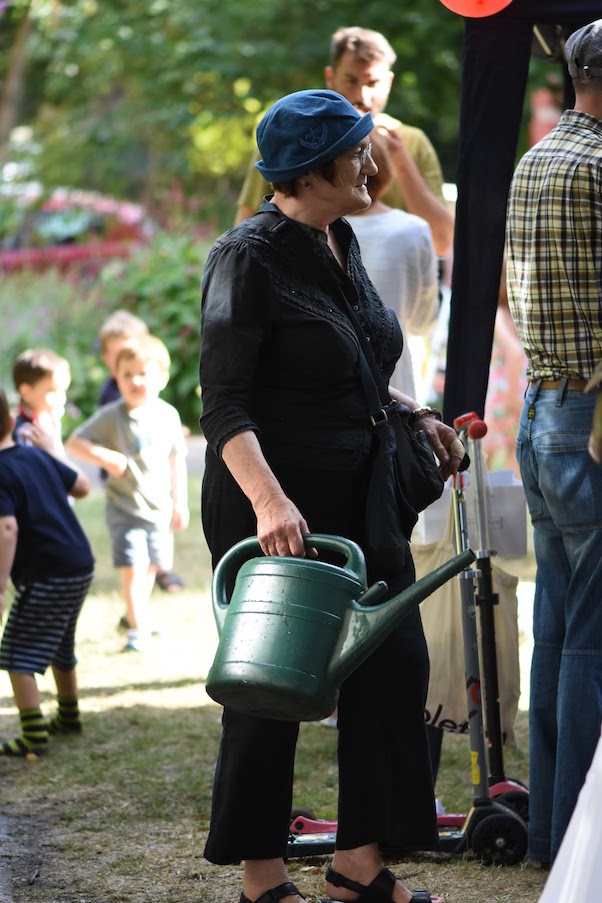
At a Compton Terrace Gardens Community event
It raised funds to improve the gardens with planting, benches, children’s play area and a plaque with the history of the gardens.
As a child, Julia spent holidays with her family wild camping, hill walking, and on Forest School Camps.
She continued these with her children, holidaying with friends and family in the same family cottage in Anglesey every year of her life, enjoying rock pooling and making dams with her grandchildren, as she had done so as a child.
In her later life, she shared a love of music, literature and left-wing politics with her long term partner, physicist and children’s author, Felix Pirani.
Her generous heart, honesty and warmth was always to be admired and never forgotten.
She is survived by her children Ellen and Teilo Vellacott, three siblings, Tess, Giles and Jason, three grandchildren, and a beloved nephew, Rob Horowitz in Albuquerque.
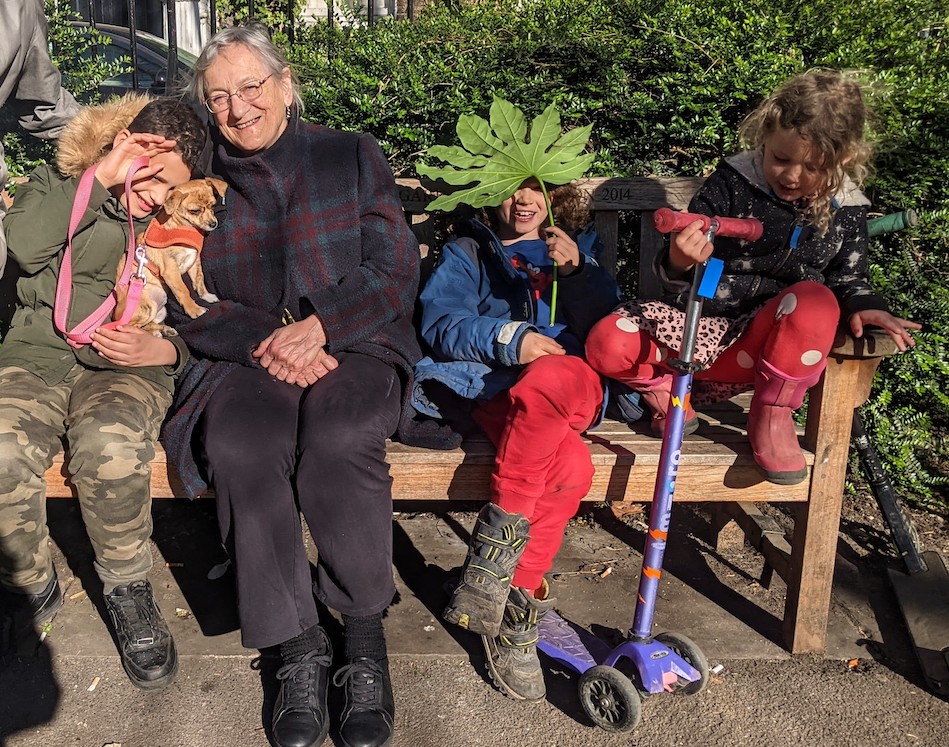
With her grandchildren at Compton Terrace
A former work colleague said of her: “Our offices in Grosvenor Gardens in Victoria weren’t designed for mingling or chat, but somehow we, and other women, found each other amongst all the male bosses and set up the Women in the Publishing Industry Group. It aimed to address every aspect of women’s working lives: inequality in pay and conditions, maternity leave, and the language used in all published work.
“Julia was indefatigable, her leadership was quiet, carefully democratic, but definite. Her kindness and concern for others was constant. She had the loveliest smile and such a glint in her eye. We will all have our own memories of Julia to cherish. For me, I can still see her in one of her flowered print dresses hurrying along the street, always with a forward lean as though into an Anglesey wind, to meet another challenge.”